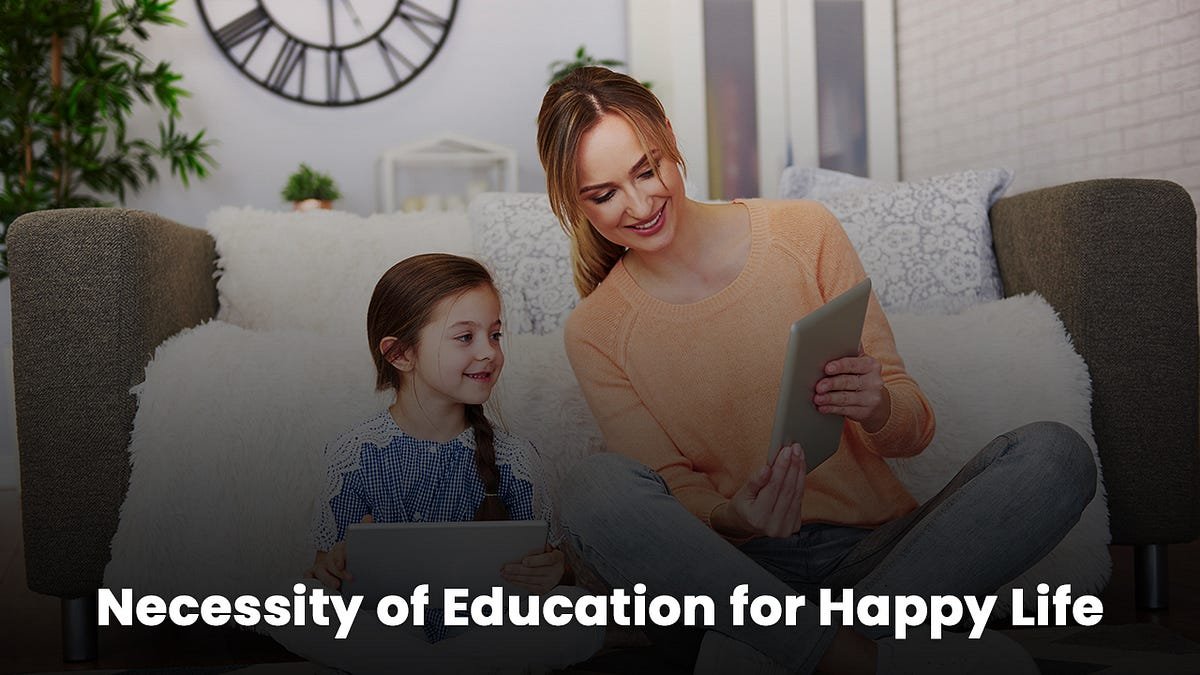Education is the cornerstone of personal and societal growth. It equips individuals with the knowledge and skills necessary to navigate the complexities of the modern world, fostering a sense of purpose and direction in life. This article delves into the myriad ways in which education contributes to a better quality of life, emphasizing its importance beyond the conventional classroom setting.
2. The Foundation of Knowledge
2.1. Importance of Learning Foundations
A solid educational foundation not only imparts basic reading, writing, and arithmetic skills but also instills critical thinking and problem-solving abilities. These skills are indispensable in both personal and professional settings, enabling individuals to make informed decisions and tackle challenges effectively.
3. Personal Development
3.1. Cognitive Growth
Education stimulates cognitive development, enhancing memory, attention, and problem-solving capabilities. It encourages curiosity and a love for learning, traits that are valuable throughout one’s life.
3.2. Emotional Intelligence
Educational settings offer unique opportunities for developing emotional intelligence, including empathy, self-awareness, and self-regulation. These skills are crucial for building and maintaining personal and professional relationships.
3.3. Social Skills
Schools and universities are social environments that teach individuals how to interact effectively with others, fostering teamwork and communication skills.
4. Economic Benefits
4.1. Higher Earning Potential
There is a strong correlation between the level of education and earning potential. Higher education typically leads to better job prospects and higher salaries.
4.2. Employment Opportunities
Education opens up a wider array of employment opportunities, including careers that require specialized knowledge or skills.
5. Societal Impact
5.1. Educated Societies
Educated societies are more likely to experience economic growth, social cohesion, and political stability. Education promotes understanding and tolerance among different cultural and social groups.
5.2. Reduction in Poverty
Education is a powerful tool in reducing poverty levels. It provides individuals with the skills needed to improve their economic situation and break the cycle of poverty.
5.3. Improved Health and Welfare
Educated individuals are more likely to make informed health decisions, leading to better health outcomes for themselves and their families. Education also increases awareness of public health issues, contributing to healthier communities.
6. Quality of Life
6.1. Lifelong Learning
Education fosters a culture of lifelong learning, encouraging individuals to pursue new knowledge and skills throughout their lives. This continuous learning contributes to personal fulfillment and adaptability in an ever-changing world.
6.2. Cultural Awareness
Education broadens one’s horizons, exposing individuals to different cultures, ideas, and perspectives. This increased awareness fosters empathy and global understanding.
6.3. Personal Fulfillment
Education can be a source of personal fulfillment, providing a sense of accomplishment and self-worth. It enables individuals to pursue their passions and interests, enriching their lives.
7. Technological Advancements
7.1. Role in Innovation
Education plays a crucial role in driving technological advancements and innovation. It equips individuals with the skills and knowledge necessary to develop new technologies and solve complex problems.
8. Environmental Awareness
8.1. Sustainable Living
Education raises awareness about environmental issues and the importance of sustainable living. It teaches individuals how to make choices that benefit the environment, contributing to the health and well-being of the planet.
9. Global Perspective
9.1. Understanding Global Issues
Education provides a global perspective, helping individuals understand and address global challenges such as climate change, poverty, and inequality.
9.2. International Cooperation
An educated populace is better equipped to engage in international cooperation, working together to solve global issues and promote peace and stability.
10. The Role of Education in Democracy
10.1. Informed Citizenship
Education is fundamental to a functioning democracy, ensuring that citizens are informed and able to participate in democratic processes.
11. Challenges and Solutions
11.1. Access to Education
Despite its importance, access to quality education remains a challenge for many around the world. Addressing this issue requires investment in educational infrastructure, teacher training, and inclusive policies.
11.2. Quality of Education
Improving the quality of education is essential for maximizing its benefits. This involves updating curricula, incorporating technology, and adopting innovative teaching methods.
12. Future of Education
12.1. Technological Integration
The future of education lies in the integration of technology, offering personalized and flexible learning experiences that cater to the needs of diverse learners.
12.2. Personalized Learning
Advancements in educational technology are making personalized learning more feasible, allowing for instruction that matches individual learning styles and paces.
13. Conclusion
Education is a powerful tool that shapes individuals and societies, leading to a better quality of life. It is essential for personal development, economic prosperity, and societal progress. As we look to the future, embracing the evolving landscape of education will be crucial in addressing global challenges and ensuring a good life for all.
14. FAQs
- How does education contribute to economic growth?
- Can education improve mental health?
- What role does education play in environmental conservation?
- How can technology enhance educational outcomes?
- Why is lifelong learning important?
